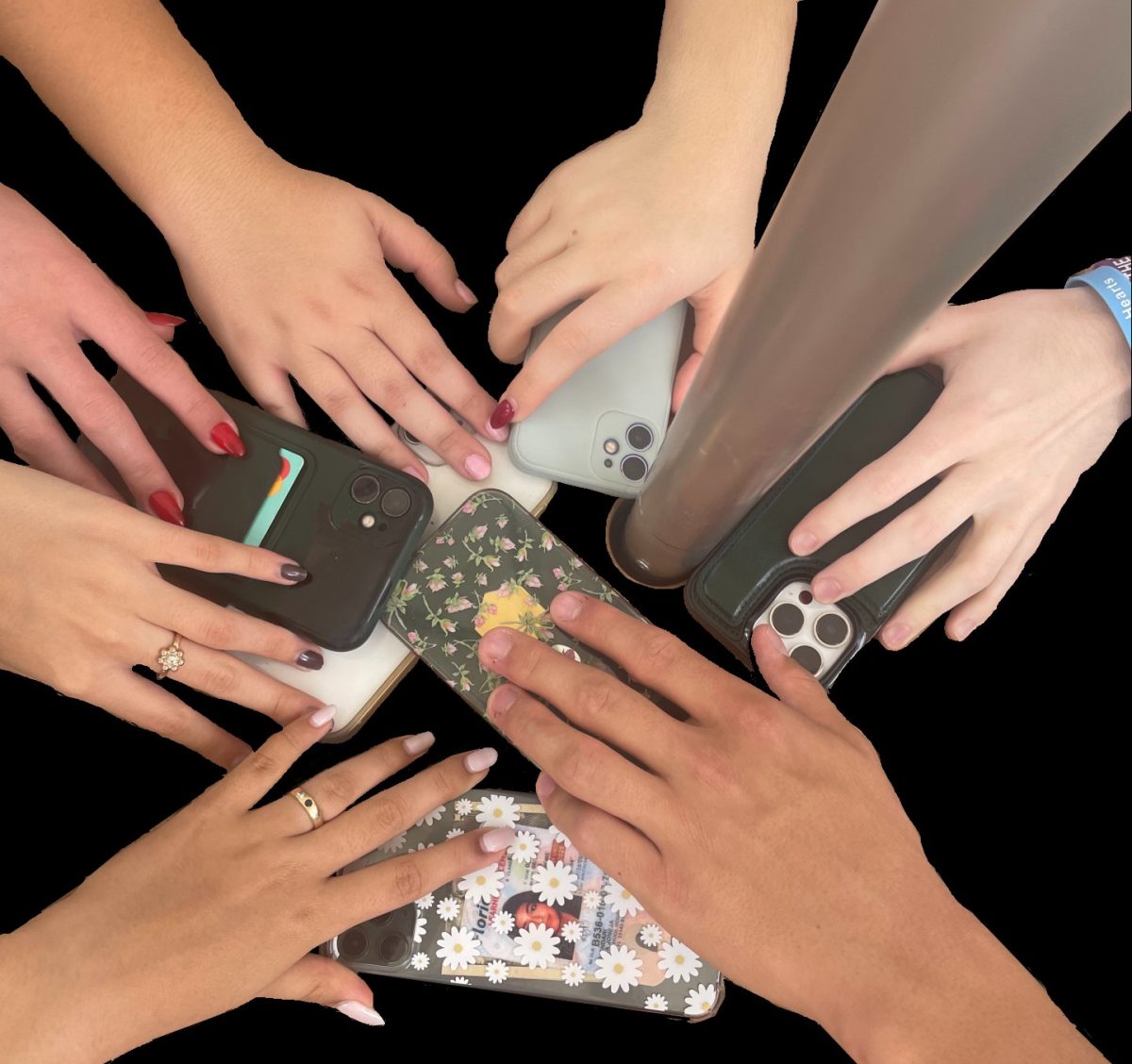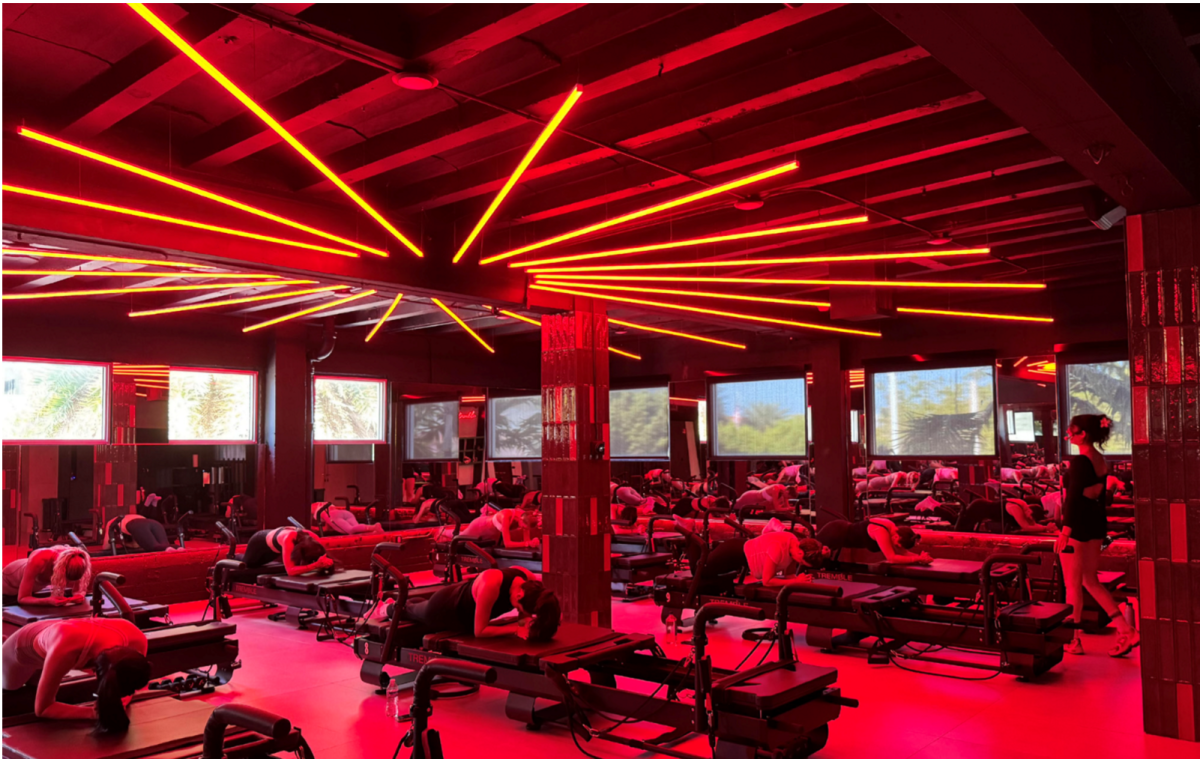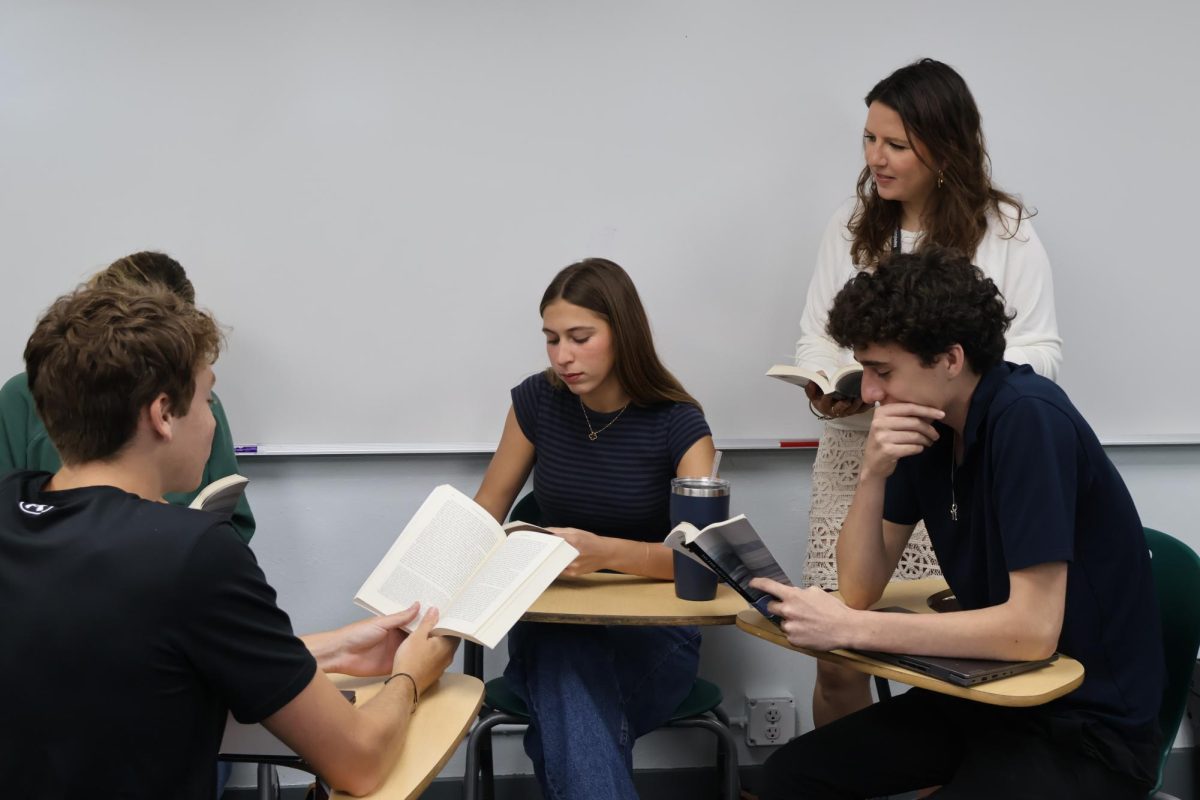One school week.
Six Ransom Everglades students.
No phones.
Though for some this may read as the beginning of a horror film, it’s really the premise of an experiment I and 5 others conducted to uncover the effect our phones have on us during the school day.
In early July, House Bill 379, signed by Governor Ron DeSantis, came into effect, banning the use of “wireless cellular devices” during “instructional time” at Florida public schools. This was done in an effort to, as DeSantis put it, “ensure discipline in the classrooms.” The law left much room for interpretation, with many schools going as far as locking student’s phones in magnet-sealed pouches and designated phone jails.
This prompted me to think about our relationship with our phones here at Ransom Everglades. Are they really as distracting as our parents (and now government) are making them seem? Would taking such measures actually have a positive effect?
When I sat down with Mr. Petar Solomun, the Upper School Dean of Students, to discuss our current phone policy, he made it clear that focus in the classroom is key. “We do have a phone shelf in every classroom… I know some teachers tend to use it, some don’t, but we absolutely do not support having your phone on your desk,” he said.
He explained, however, that phone use during class has not been a major concern to his knowledge, emphasizing that students usually get distracted by their computers rather than their phones. “I never gave it a serious thought, but we do not have, from what I know, that many issues with phone usage during class,” he said. “I really have not heard anyone talking to me about that particular issue.”
As for phone use outside the classroom, he simply stated, “I think that students can use their time better.”
Nevertheless, I made it my mission to discover if time at school without a phone is really time ‘better’ spent.
Fast forward to early September, when I set out to find some brave volunteers for my experiment. As you might imagine, it was very difficult to find people willing to separate themselves from the rest of the world for a whole week.
Participants went into the experiment feeling apprehensive, citing fear of “the sensation of not having my phone in my pocket,” as Lucas Lippey ’25 put it. “If I was going to totally lie and make it up, I would say I feel really excited about it.”
Our six lab Raiders came from diverse screen times, phone uses, and daily habits. While some reported barely using their phone in/outside of school, others acknowledged their phones have become a coping mechanism for the stress of being back at school.
“I have been scrolling a lot more than usual because school has been really stressful,” said Tyira Jackson ’24. “Especially as a senior doing so many things for college, I really need a mental break. It’s hard to have a healthy break because it feels more like a distraction ‘on purpose.’ I feel more guilty about it than just mindless scrolling because it is mindless… I give myself more of a benefit of the doubt.”
What all 6 participants unilaterally agreed on was a sense of curiosity about the experiment. “I’m kind of hopeful with this,” said Audrey Caplow ’25. “It will show me how much I don’t need to depend on my phone throughout the day.”
The only rule of this week was that phones must be turned in at the front office, inaccessible to the participants during school hours, 8:00 a.m. to 4:00 p.m. Participants were only allowed to retrieve their phones for absolute emergencies, and any rule breaks were logged in their daily reflections.
So with begging, promises of eternal moral enlightenment, and feigned excitement, we were off.
Day 1
The unanimous conclusion after Day 1 was simple: this experiment was going to be much easier than we thought. Though students did report feeling a sense of “FOMO” and stress when they searched for their devices in their pockets, they all agreed that it was not as bad as predicted.
“I did feel throughout the day that I would have to catch up on what was happening, and I felt as if there were things I would miss,” said Mateo Sauceda ’26. But even with just one day under their belts, students felt “optimistic that by the end I will not need to look at it as much.”
Day 2
By Day 2, the benefits were becoming apparent. “It was nice thought to go between classes without being distracted by my phone,” commented Ava McAliley ‘26. Students reported feeling more productive, focused, and present. Lack of communication began to emerge as the principal issue, as Caplow pointed out: “There were times where communicating with friends was difficult and a little stressful.”
Day 3
With the arrival of the halfway point came what can only be described as chaos. While some participants continued to feel benefits and stick with the experiment, two decided to drop out. “Sorry Mia, I used my phone like all day… I did not have the emotional capacity to deal with not using it today,” read an apologetic message from Sindhu Talluri ’25.
At the other extreme, however, participants reported a reduction in stress. “Without the need to keep looking at my phone each opportunity I have, I feel a lot less stressed since it eliminates something I felt I needed to do,” said McAliley.
Overall, there was a noticeable shift in responses from all the participants, highlighting the inconvenience of being phoneless and bringing into question the sustainability of this practice.
Day 4
The remaining participants came back on Day 4 with a positive attitude, and the group as a whole seemed to finally be reaping the benefits of unplugging. Sauceda described it as “interesting. Not always comfortable, but doable.”
At this point in the experiment, participants started to look beyond themselves and notice others’ habits. “During advisory today every single person was on their phone except me. It feels like I am now acutely aware of it,” said Caplow. “It feels lighter, like an invisible weight has been lifted off my back,” added Sauceda.
Day 5 & Final Reflections
As the experiment came to a close, participants were left with newfound clarity. “Phones have become a huge part of our modern lives… calendars, reminders, alarms, organization. I think I didn’t realize how much of that helped me organize my life until now,” highlighted Caplow. “I think I’ll just be more mindful of HOW I’m using my phone and what I’m using it for. I don’t think the usage of my phone is going to change, but I will just be more appreciative of all the little things it makes easy for me.”
Other participants, like McAliley, expected a reduction in their screentime both at school and at home, saying, “It will help me minimize my screen time use that’s not absolutely necessary.”
Overall, participants reflected on the importance of awareness and how easy it is to scroll, message, and browse on your phone without even realizing it. Further, all participants, when asked, said they would recommend that their friends try an iteration of this experiment—perhaps less strict—because it forced them to examine their relationship with their phones.
So, what implications does this have in relation to the real policy implemented into public schools? In other words, do the participants think the phone ban is really conducive to a better learning environment?
Our group was heavily divided on this issue. Some saw the ban as an effective tool to increase learning in schools: “I think it would definitely enhance learning and make people focus more… I think it might be annoying for the students but will help in the long run,” explained McAliley.
On the other hand, participants brought up the issue of school safety and the importance of access and communication.
“In the world we live in, with all its issues like school shootings and lockdowns, a child needs to be able to contact their parent in an emergency. It is essential and not something to be taken lightly with the reality of education in America today,” said Caplow.
All of the participants emphasized the importance of working with technology and not against it in different ways throughout the experiment, with Caplow taking a very passionate stance, seeing the law as antiquated and anti-progress.
“We have to be adapting to modern times. Technology is a big part of our world and will continue to be,” she said. “By restricting it and almost acting afraid of it we are just enabling bad mindsets, bad behaviors, and negative connotations rather than creating positive habits and mindsets. We have to use phones to our benefit, not let them use us.”








